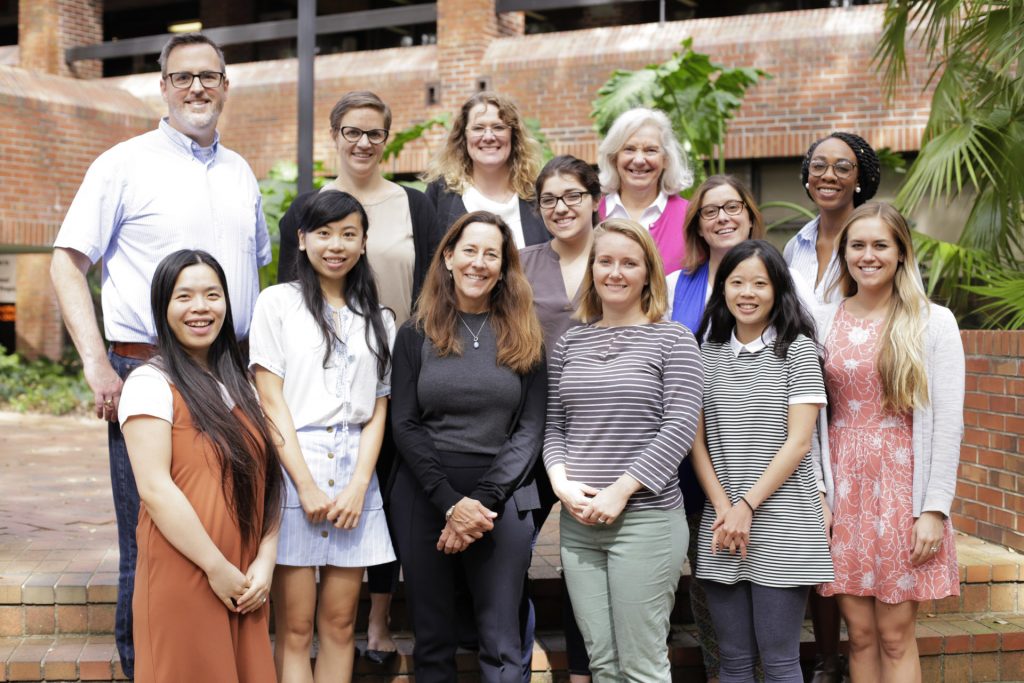
In an instant, Louie, age 3, had pulled all the toys and books off the nearest shelf, hurled them across the classroom at his teacher and classmates, and flung himself to the floor. His eyes overflowed with tears as his cries echoed through the otherwise silent classroom. Louie was immersed in frustration as he did not want to clean up his play materials and transition to story time. This was the fourth eruption that day.
Louie was one of the first children new teacher, Maureen Conroy, worked with. She was filled with concern of how to best help Louie, support his unique needs and ensure he flourished in her classroom. “His behavior was really a challenge because it interfered with his ability to learn and impacted the classroom atmosphere,” Conroy said.
Whether sparked by exposure to environmental risk factors, a difficulty with self-regulation or developmental delays that contribute to behaviors, Louie is not alone in his behavioral challenges. Many young children in the United States face these same difficulties, which significantly impact their ability to excel in the classroom and beyond. Conroy realized it was critical to discover how to tackle these behaviors for children at an early age to maximize their potential for long-term success in and out of the classroom.
“When young children, like Louie, enter school, we can change their interactions with adults in the classroom,” Conroy said. “Rather than focusing on their challenging behaviors and using harsh or punishing disciplinary practices, we know that using positive and preventive strategies work to teach children social-emotional skills and behaviors and life skills.”
“But only if their teacher knows how to implement these practices,” Conroy continued. “A lot of early childhood and early elementary grade teachers haven’t been trained in effective practices to work with children like Louie in their classrooms.”
Eventually, this skill gap provided the foundation for BEST in CLASS, an intervention program created by Conroy and Kevin Sutherland, a special education professor at Virginia Commonwealth University. BEST in CLASS helps teachers respond to and effectively reach children with challenging behaviors by providing them instructional practices that help prevent these behaviors and enhance learning. During BEST in CLASS, trained coaches use the Anita Zucker Center for Excellence in Early Childhood Studies’ own practice-based coaching model to provide transformational support to teachers.
Since its inception in 2008, nearly 200 early childhood teachers across Florida and Virginia have implemented BEST in CLASS’ key practices in their classrooms producing significant improvements in their overall effectiveness in supporting children with challenging behaviors. These improvements have included enhanced classroom and instructional quality, development of positive relationships and responses to behavior, increased self-efficacy in teachers and increased social-emotional learning and development in children.
Growing impact
BEST in Class continues to optimize the classroom for both teachers and young children with an expanded scope. In July 2018, the program was awarded a four-year grant from the National Center for Education Research at the Institute of Educational Sciences (IES) to further its impact and development — in early elementary grades. “We will work with four schools a year, two in Florida and two in Virginia, with 12 classrooms per school — so 48 classrooms per year,” Conroy said.
Understanding the value and potential for impact in improving the lives of teachers and children, Conroy and her team are ready to commence the expansion to support early elementary teachers and children.
“There are children who, like Louie, don’t have the social-emotional learning skills to know what to do when they enter kindergarten, Conroy said. “By the time they reach first grade, without interventions such as BEST in CLASS, their behaviors are likely to worsen — leading to referrals to the office, suspension for challenging behavior and challenging relationships with their teacher or other children in the classroom. Thus, my team and I are excited to further the opportunity for more teachers to gain these skills. It has the potential to make a long-term difference for teachers, children, and families.”
Story by: Alexis Brown

